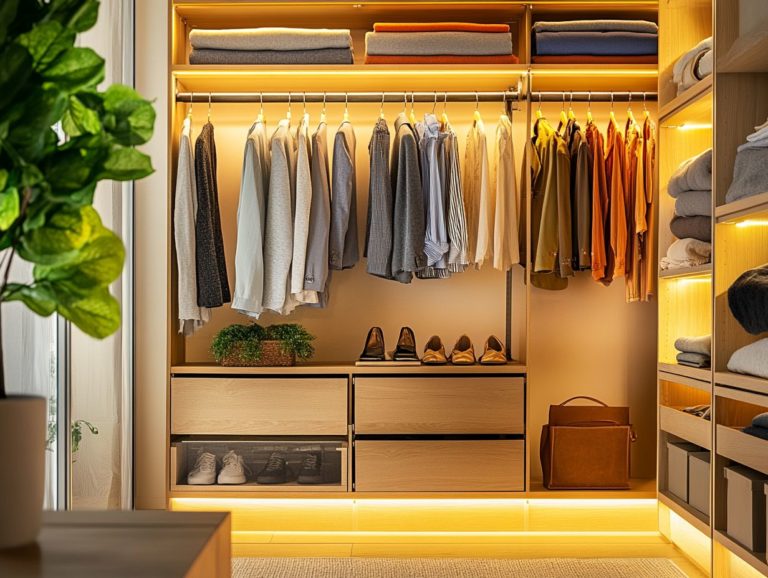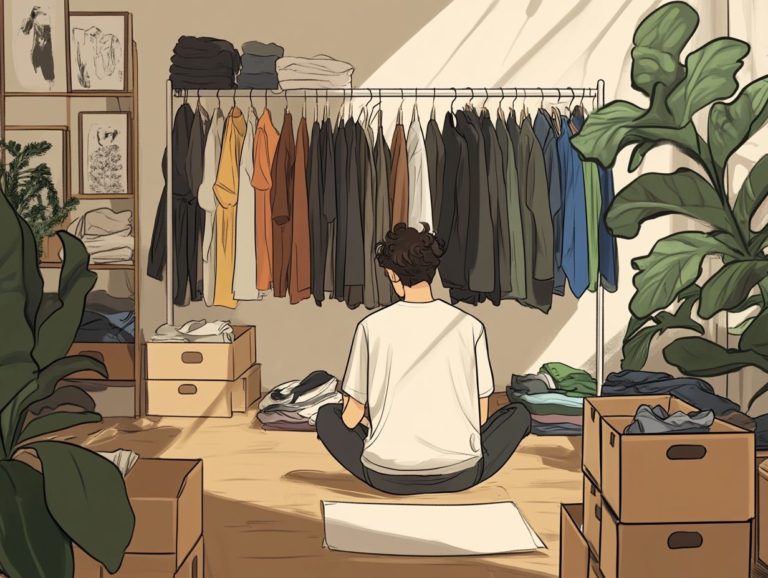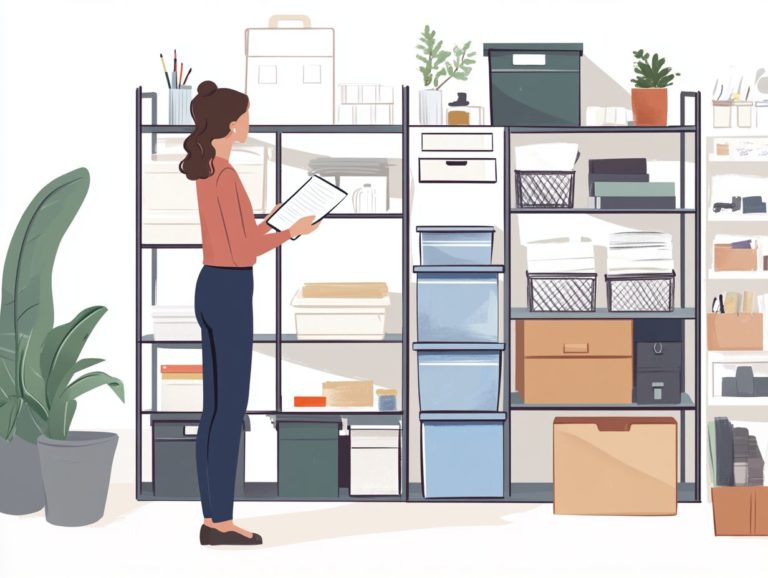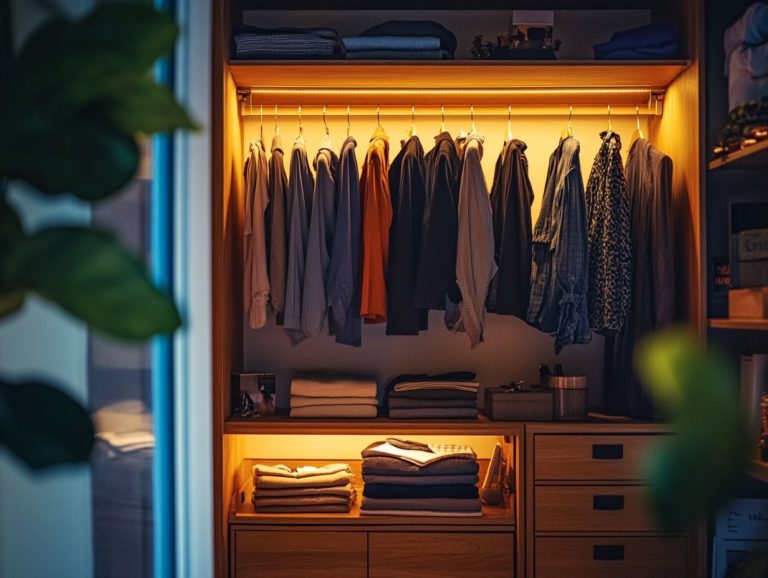5 Questions to Ask Before Decluttering
Are you feeling overwhelmed by the clutter in your home and the emotional attachments that make decluttering challenging? Take a moment to pause and ask yourself some pivotal questions before you embark on your decluttering journey.
Get ready to explore five powerful questions that will transform your decluttering journey! By contemplating what truly matters to you, you ll not only create a more organized space but also nurture a home that reflects your values and enhances your relationships.
Ready to reclaim your space? Let s delve into these thought-provoking questions together!
Contents
Key Takeaways:

- Before decluttering, ask yourself why you want to do it. Is it to create more space, reduce stress, or be more organized? Understanding your motivation will help you stay focused and committed to developing habits that promote a clutter-free environment.
- Do you really need the item you’re considering getting rid of? If you haven’t used it in a year or it doesn’t bring you joy, it’s probably time to let it go. Be honest with yourself and don t hold onto things out of guilt or obligation.
- When decluttering, ask if the item has a designated home. If not, consider if it truly belongs in your space. A designated home helps keep things organized and makes it easier to put items away after use.
2. The Emotional Connection to Clutter
Many people grapple with clutter due to deep emotional ties to their possessions. This attachment can create an emotional burden that disrupts your living space and overall happiness.
These connections often arise from sentimental memories associated with specific items, making it challenging to differentiate between what is genuinely useful and what has simply become a relic of the past. Clutter can increase feelings of anxiety and stress, complicating your ability to focus and find tranquility in your surroundings.
To navigate the emotional hurdles of letting go, approach decluttering with awareness of your thoughts and feelings. Acknowledge the value of your memories while understanding that clinging to too many items can hinder your emotional well-being.
Implement strategies such as setting clear intentions, designating spaces for cherished items, and gradually sorting through your possessions. This can transform the decluttering process into something much more manageable.
By cultivating emotional readiness, you can progress toward a more organized environment that promotes clarity and alleviates stress.
3. Practical Tips for Effective Decluttering
Implementing practical tips for effective decluttering can elevate the organization of your kitchen and other areas in your home, creating a more functional living environment.
To achieve a genuinely organized space, categorize your kitchen items into essential groups, such as cooking, baking, and meal prep. Using transparent bins or labeled containers allows you to locate what you need without the chaos of a cluttered countertop.
Regularly maintaining these systems like scheduling a monthly declutter session will help you sustain an orderly environment. By establishing small, manageable routines, you ll cultivate a proactive approach that seamlessly integrates into your everyday life, leading to a more enjoyable and efficient cooking experience.
4. The Role of Professional Help in Decluttering

Seeking professional assistance for decluttering offers invaluable support for those grappling with emotional attachments to their belongings. This guidance leads you towards effective organizing and storage solutions while easing the stress often associated with the decluttering process.
The expertise of a professional organizer extends far beyond mere tidying up. It involves crafting custom plans that align with your unique lifestyle and emotional needs. By addressing the emotional barriers that frequently accompany disorganization, these professionals empower you to face your attachments in a safe and constructive manner as you work towards a clutter-free dream home.
This journey toward a clutter-free environment not only enhances your physical space but also nurtures your emotional well-being. It fosters a profound sense of control and accomplishment. With expert guidance, you can develop sustainable organizing systems that ensure you maintain your newfound order, transforming your spaces into serene havens of tranquility and functionality.
5. How Feng Shui Enhances Living Spaces
Feng Shui principles, a practice from ancient China, focus on arranging spaces to enhance harmony and well-being. They hold the power to transform your living spaces by promoting a harmonious flow of energy, creating an atmosphere that nurtures comfort and happiness while addressing emotional ties that often lead to clutter.
By looking into the foundational elements of this ancient practice, you can turn your home into a serene sanctuary. Simple adjustments like rearranging furniture or weaving in natural elements can transform your space into a peaceful retreat. Ensuring that energy can flow freely encourages a sense of calm and order. Adding plants and decluttering your environment can enhance the ambiance, making every room feel welcoming.
With a mindful application of these techniques, you can effortlessly cultivate a joyful living experience that beautifully balances both the physical and emotional dimensions of your life.
6. Mindfulness in Decluttering
Practicing mindfulness in decluttering allows you to thoughtfully assess your feelings about personal items and gifts. This helps alleviate emotional burdens and create a more intentional living space.
By tuning into the present moment and acknowledging the emotions connected to each object, you can navigate the decision-making process with greater ease. Techniques such as visualizing the ideal space you wish to cultivate can guide you in determining what truly belongs there. Taking the time to reflect on the purpose each item serves enhances your clarity about its value.
This mindful approach makes it easier to let go of items. It also helps you build a meaningful relationship with what you keep, resulting in a home that genuinely reflects your life and aspirations.
7. Building Habits for a Clutter-Free Lifestyle
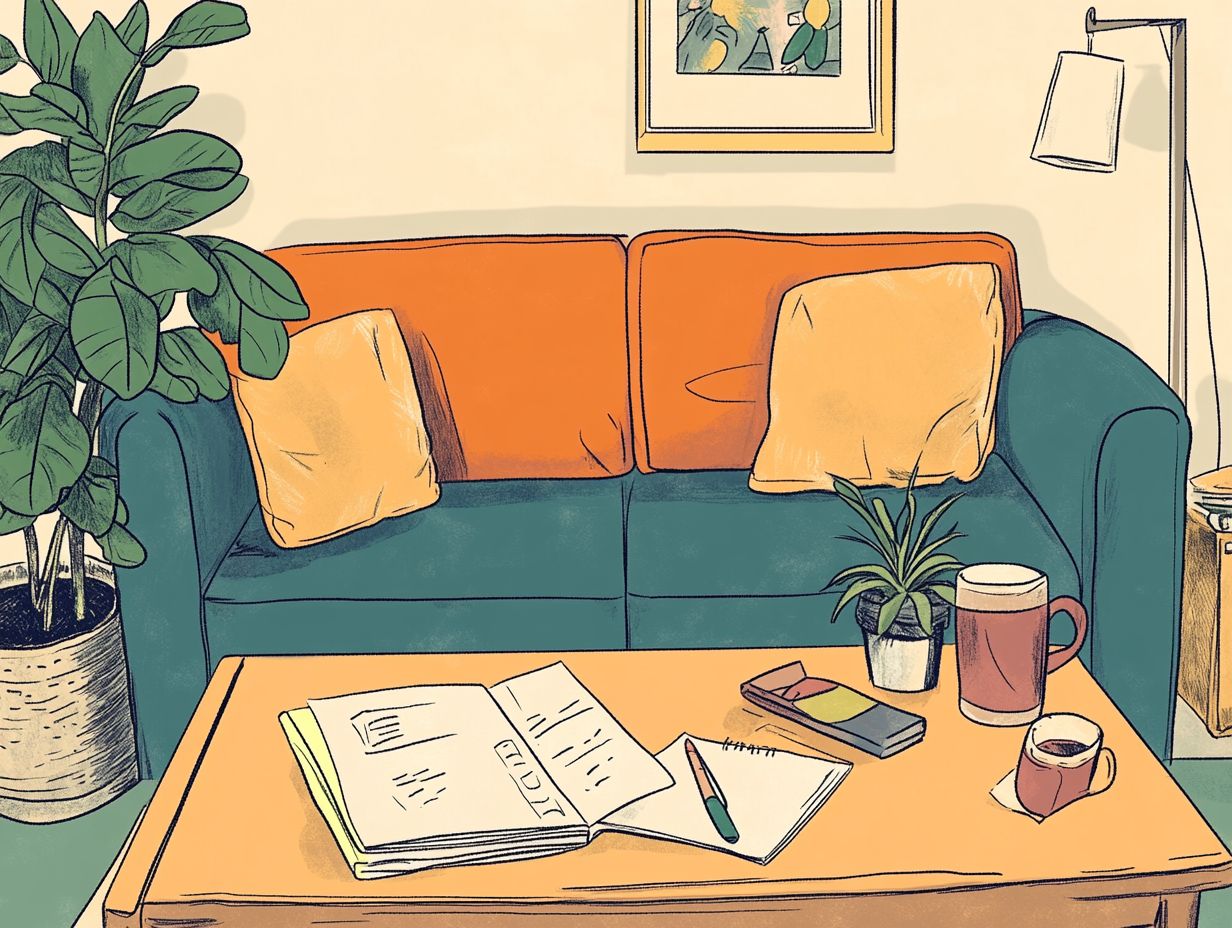
Building sustainable habits for a clutter-free lifestyle requires establishing routines that prioritize decluttering and organizing. This allows you to manage your emotional attachments to possessions with greater ease.
These strategies can elevate mundane tasks into valuable opportunities for reflection and decision-making about what genuinely enhances your life. Regularly assessing your belongings cultivates a mindset of mindfulness and helps you navigate the emotional significance behind each item, particularly sentimental ones.
By incorporating small, consistent actions such as dedicating time each week for reassessment, you can adopt a proactive approach to organizing your spaces. Consider using The 5-Step Closet Decluttering Checklist to start today and prevent clutter from taking over your life! This ongoing practice not only prevents clutter from piling up but also nurtures a healthier relationship with your possessions, empowering you to make thoughtful choices that resonate with your personal values.
Frequently Asked Questions
What are the benefits of decluttering?
Decluttering can have a positive effect on both physical and mental well-being, alleviating anxiety and enhancing happiness. It can reduce stress, improve organization, and create a more peaceful and comfortable living space.
Start your journey toward a clutter-free life today!
How do I determine what to keep and what to get rid of?
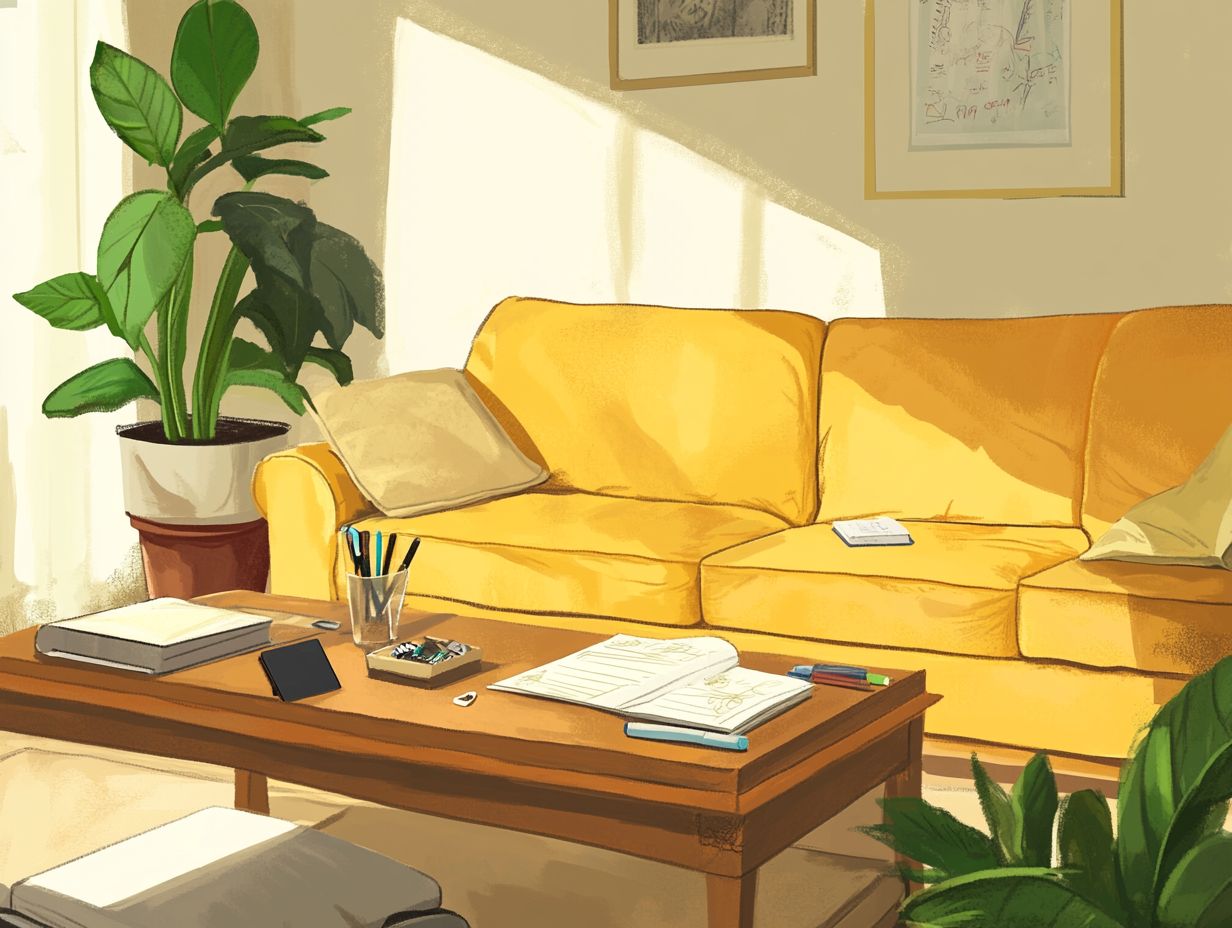
Ask yourself if an item is useful or brings you joy. If it does neither, it s time to let it go.
Consider how often you use the item and any sentimental value it may hold.
What should I do with items I no longer want?
You have options for unwanted items. Donate, sell, recycle, or toss them if they are unusable.
Choose what fits best based on the item s condition and your emotional attachment.
How can I make decluttering a manageable task?
Start small and tackle one area at a time. Set a timer to keep focused and avoid feeling overwhelmed.
This approach makes it easier to create a peaceful living space you love.
Do I need to declutter my entire home at once?
No, you can declutter in stages. Focus on the areas that need it most, like your kitchen or living room!
This strategy makes the process efficient and less daunting.
How can I maintain a clutter-free home after decluttering?
Set up a system to regularly evaluate your things. Schedule regular decluttering sessions to keep clutter at bay.
Implement a one-in-one-out rule: for each new item, let go of an old one. Regularly check if your things still bring you joy!

